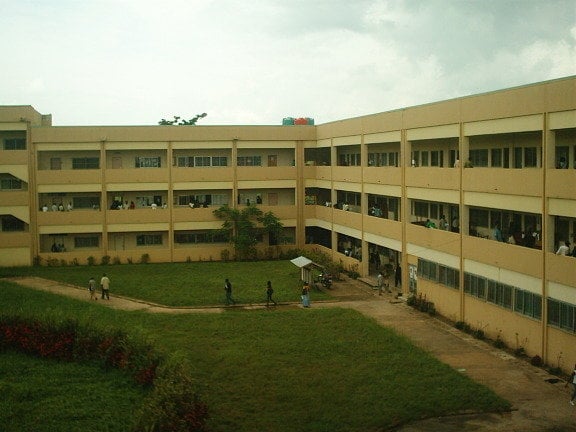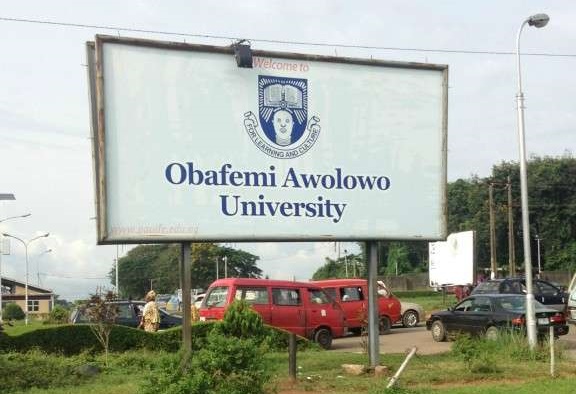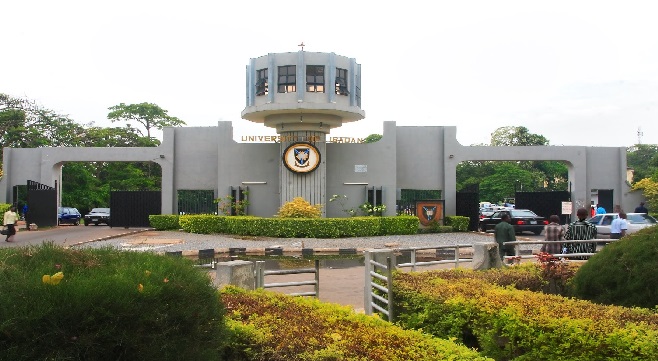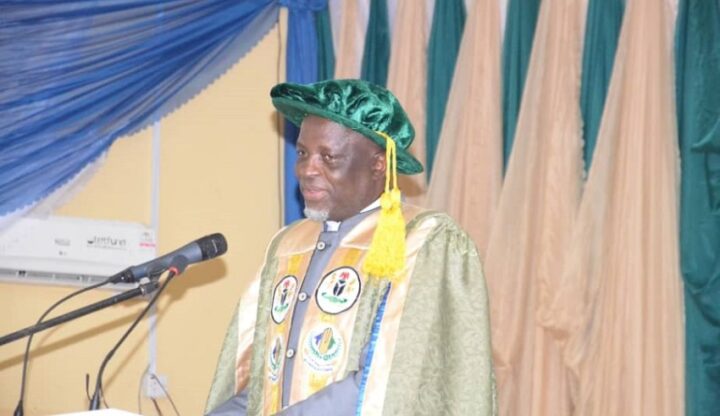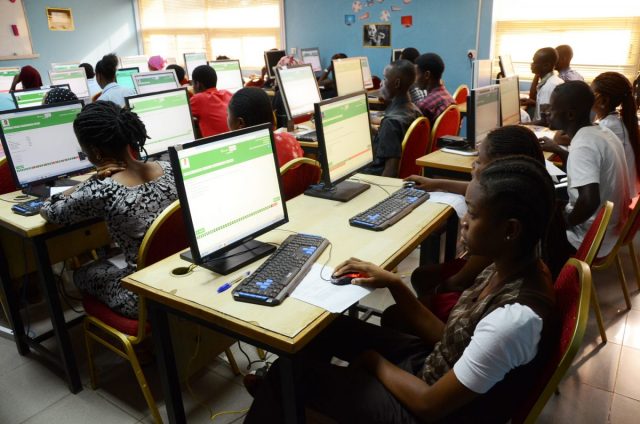Stakeholders have expressed concern over what they fear is morphing into an upsurge in lecturer resignations across public universities in Nigeria.
These education sector practitioners have attributed the resignations to poor service conditions, the government’s insistence on deploying the IPPIS payroll software for university staff, and general dissatisfaction with pay rates.
Some cite the subsisting embargo on civil service employment, which affects government-funded tertiary institutions.
They said the employment ban has resulted in a staff shortage for federal universities that has put a lot of workload on existing university workers and forced many to resign.
Advertisement
Among these concerned stakeholders are university vice-chancellors (VC), serving professors, unsettled lecturers, and other members of the Academic Staff Union of Universities (ASUU).
Their concerns come amid dialogues between academics and the government around months of withheld salaries, funding for public tertiary institutions, infrastructural decay, and the sustainability of tuition-free education.
EMPLOYMENT EMBARGO
Advertisement
During the height of the coronavirus pandemic in mid-2020, the Muhammadu Buhari administration placed an embargo on employment in ministries, departments, and agencies (MDAs).
The former president cited the effects of the coronavirus pandemic on the revenue projections of the government.
It was said that employment waivers would be issued to ensure that deceased and retired workers were replaced.
In 2017, Buhari had placed a similar ban on recruitment into the public sector to manage rising personnel costs.
Advertisement
However, indications are that the ban has been on for years prior, similarly affecting federally funded universities.
Moyosore Ajao, a professor at the University of Ilorin in Kwara state, told TheCable that VCs, for over eight years, have had to seek clearance from the civil service and secretary to the state governments before employing lecturers.
“VCs have to run to Abuja to get clearance from the Federal Character Commission and the House of Assembly. It’s unheard of. It was like that all through the whole eight years of Buhari’s tenure,” the professor added.
Onatolani Hassan, a lecturer at the Department of Business Education at Tai Solarin University of Education (TASUED) in Ijebu-Ode, said the government has not formally employed new academics in the last 10 to 15 years.
Advertisement
Olayemi Akinwumi, the VC of Federal University Lokoja (FUL), similarly stated in an interview with NAN that lecturers in the country’s public universities are overstretched and resigning en masse due to this.
“Each time I see what my lecturers are going through to cope with the workload, I feel pity for them,” he said.
Advertisement
‘NIGERIA’S PUBLIC VARSITIES IN STAFFING CRISIS’
In an interview with NAN, Wahab Egbewole, a vice-chancellor at the University of Ilorin, blamed what he said is fast becoming an apparent dearth of lecturers on an employment embargo by the federal government.
Advertisement
The brain drain, he said, is partly caused by lecturers seeking greener pastures at home, abroad, and in retirement.
He urged the authorities to provide the universities with an enabling environment that would discourage the brain drain.
Advertisement
The VC asked the federal government to lift the embargo to enable the universities to bridge the staffing gap.
Alewo Johnson-Akubo, VC at Salem University Lokoja, described the shortage of lecturers as “very unfortunate”.
He said universities, in the past couple of years, tried to manage the situation through sabbaticals but the arrangement has become difficult as the number of lecturers continues to shrink.
Akinwumi of FUL blamed this on the federal government’s imposition of the IPPIS payroll software, which academics argue does not recognise peculiarities of university employment like sabbaticals.
“Sabbatical is a university culture where as a lecturer you are allowed to go to another university and lecture.
“Again, the visiting lecturers were very helpful in areas or departments where you don’t have enough lecturers. But because of poor funding on the part of the government and IPPIS, it’s no longer tenable.
“Now, this is not the best time for us the vice-chancellors. This is because, as VC, you have no power to employ a single cleaner not to talk of a lecturer.”
Muhammad Lawan, the deputy vice-chancellor academic at Yobe State University, sued for the resuscitation of the culture of absorbing first-class graduates as lecturers.
Another measure, he added, would be to expand the existing universities instead of establishing new ones.
The academics collectively insist that universities “shouldn’t be subjected to civil service rules’’.
QUALITY OF DEGREES AFFECTED
University lecturers who bear the brunt of the exit of their colleagues are worried about the impact of this on their workload and academic standards.
The ASUU branch at the Federal University of Lafia (FULafia) says the shortage of lecturers in Nigerian universities is affecting the standard and quality of education negatively.
“It is a fact that many lecturers have left the university system in Nigeria. This exodus is defined by the poor working conditions existing in the universities,” said Sunday Oraye, the chairman of ASUU at FULafia.
“The universities are coping largely because the few existing lecturers are being overburdened with the excess workload that is academic.
“Lecturers are made to teach large classes and more courses to be able to keep the courses running.
“It is common to find a lecturer teaching at all levels of a department with very poor facilities and very poor working conditions.”
BREAKDOWN, DEATHS FROM WORK STRESS
Oraye said the increasing workload on public university lecturers as a result of more resignations has put undue pressure on their health, leading to high mortality rates.
“During the last NEC meeting of the union held at the Kaduna State University in November, over 100 lecturers were reported to have died between August and November 2023 alone,” he said.
In Adamawa, Dr El-Maude Gambo, the ASUU chairman of Modibbo Adama University (MAU), Yola, urged for a 30 percent budgetary allocation to education.
He said this would engender the provision of facilities that would discourage lecturers from seeking greener pastures.
Oluwagbemiga Adeleye, the chairman of ASUU at the Federal University of Agriculture, Abeokuta (FUNAAB), blamed the shortage of lecturers on government policies and the bad economy.
“The terrible economic situation we have faced has made some lecturers seek greener pastures elsewhere around the world and that is what we call the ‘Japa’ syndrome,” he said.
STAGNANT PAYSCALE
President Bola Ahmed Tinubu recently approved the implementation of 35 percent and 23 percent of salary increments for staff of all federal tertiary institutions.
In a September 14 letter to Tahir Mamman, the education minister, Ekpo Nta, the CEO of the wages commission, said the federal government had released a circular on implementing the adjusted salary structure.
Moyosore Ajao, who is a professor at UNILORIN, said the highest-paid professor in Nigeria earns N416,000.
“The take-home salary of a professor that has served for up to 10 years is about $330,” he further stated to TheCable.
“Do you know how much we’re losing as our best hands are resigning? Professors are not conjured up in our backyards. If our professors are also resigning, who are to train the upcomers?” he asked.
TASUED’s Onatolani Hassan said salaries have not been increased for a long time, demotivating lecturers.
“The inflation rate is in double digits, eating deep into the income of lecturers, which had remained static while expenses are increasing daily,” he added.
“There are vacancies but the university management cannot recruit. There is a heavy workload.”
IN SEARCH OF SOLUTIONS
Academics say there’s a need for increased funding for public tertiary institutions, while private organisations should be mandated to utilise these institutions for their Research and Development (R&D).
Adeola Olatunji, senior lecturer in the Department of Sociology at the University of Lagos, said the government must lift its embargo on employment to address the widening gap.
He said providing an enabling environment through improved remuneration and adequate facilities in the nation’s universities would ensure fewer academics would resign.
Ibrahim Nasir, senior lecturer at the Department of Political Science at Prince Abubakar Audu University in Kogi, said that universities have only been coping with the shortage of lecturers through improvisation.
“To say that there is a shortage of lecturers in the Nigerian University is an understatement,” he said.
“This is evident in the lecturer-to-student ratio in all the universities. In most cases, you have a ratio of one lecturer to over 2,050 students.
“The main reason for this shortage of lecturers in the university system is usually poor remuneration. We improvise by lumping classes together where you will have large numbers of students to teach at a time in a class.
“This means where you are supposed to have four or five lecturers, you will have only a lecturer taking care of them.”
According to him, lecturers also deploy the grouping system where they have batches A, B, and C.
“In this case, you have to fix extra lectures to see how you can finish a course outline within the shortest possible time. Even at that, you have to struggle and even go into the weekend to see how you can meet up,” he said.
Add a comment

